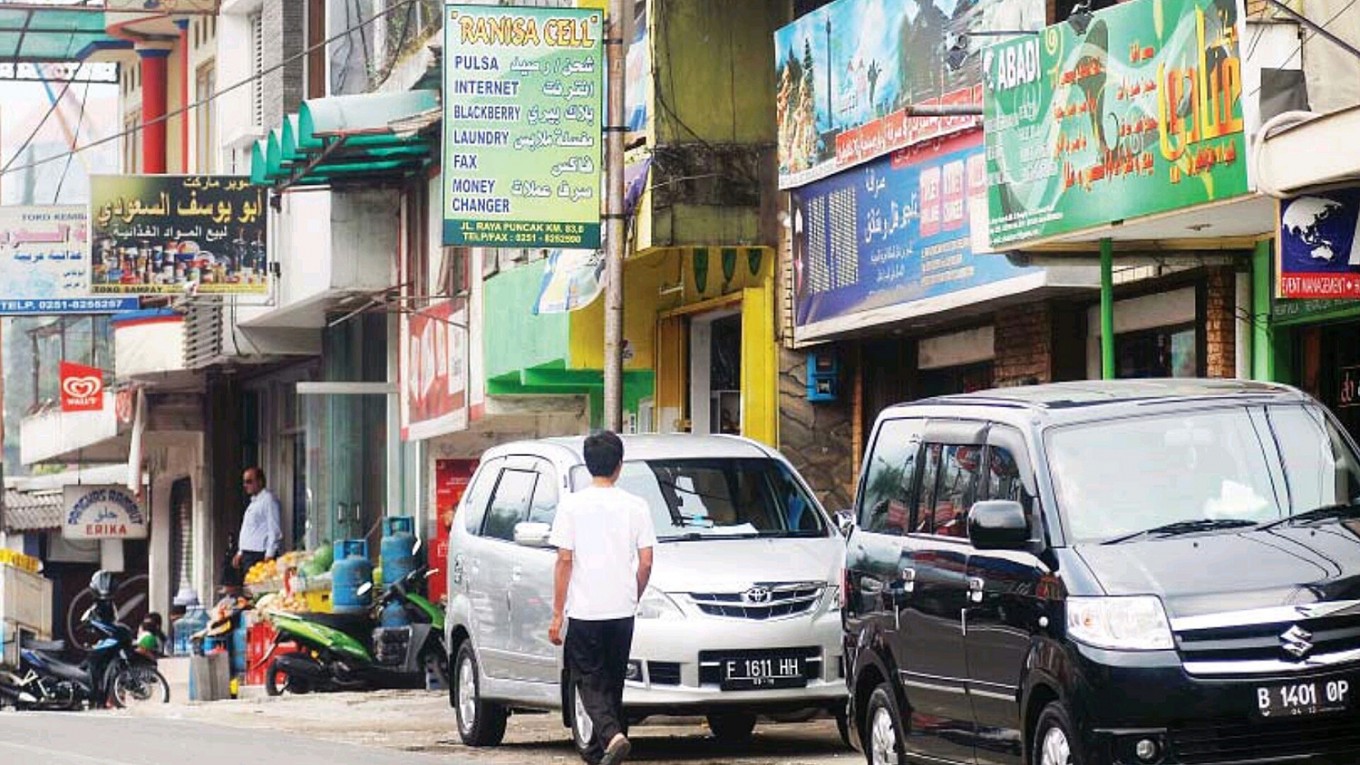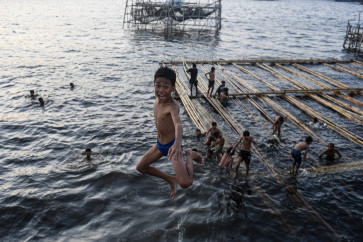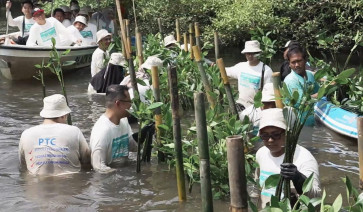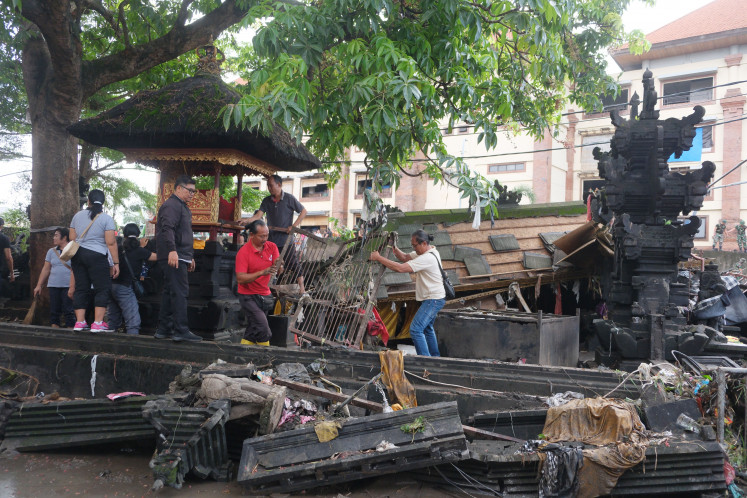Popular Reads
Top Results
Can't find what you're looking for?
View all search resultsPopular Reads
Top Results
Can't find what you're looking for?
View all search resultsDiscovering Little Arabia in Puncak
A set of restaurants, minimarkets, money changers and barbershops decorated with Arabic letters creates a unique vibe in the Warung Kaleng area of Jl. Raya Puncak, Cisarua, West Java.
Change text size
Gift Premium Articles
to Anyone
A set of restaurants, minimarkets, money changers and barbershops decorated with Arabic letters creates a unique vibe in the Warung Kaleng area of Jl. Raya Puncak, Cisarua, West Java.
Located at kilometer 84, Tugu Utara village, Warung Kaleng has turned itself into a heaven for tourists from Middle Eastern countries such as Saudi Arabia, Yemen, United Arab Emirates and Qatar. The Arabic signs on the buildings, which might be hard to understand for some Indonesians, make it a lot easier for the Arab tourists holidaying in Puncak.
Warung Kaleng is considered to be the main hub for Middle Eastern tourists in the Puncak area. Chika, a young woman who works for one of the Arabic-style cafés in Warung Kaleng, told The Jakarta Post that seeing local people interacting with Arabic tourists was a common sight in the area.
The green hills, tea plantations and chilly weather in the mountainous area attract many Arab tourists.
“I like it here because the weather is so good, and also I cannot find green scenery like this in my country,” Mujahir, a tourist from Saudi Arabia, said.
Mujahir’s friend, Hasyim, addstill ed that he liked Puncak because everything was cheaper than in other countries he had visited.
“I’ve been to Malaysia, Japan and China, and I can say the stuff here is cheaper than it is in those countries. Besides, the people are also very friendly. Some of them even speak Arabic. My driver speaks Arabic,” Hasyim told the Post.
With the increasing number of Middle Eastern tourists, some Warung Kaleng citizens have begun learning to speak Arabic, mostly from their daily encounters with the tourists.
Iwan, who has been working in a barbershop for 21 years, said he had no problem communicating with the tourists. He claims that 99 percent of his customers are Middle Eastern.
But not all are fluent in Arabic. Dewi, who has worked for one of the Arab cafés in Warung Kaleng for one-and-a-half years, is among those struggling to communicate with Arab customers.
“The problem occurs when I don’t understand what they are saying. They cannot speak English either, which worsens the situation. We usually use hand gestures to fix that,” she said.
According to Agus, a management staff member of one of the Arab restaurants in Warung Kaleng, the peak periods for Arab tourists in Puncak are after the Idul Fitri and Idul Adha (Day of Sacrifice) holidays. Outside of those periods, only groups of young Arab men visit Puncak.
The number of Middle Eastern tourists in Indonesia increased from 160,696 in 2015 to 186,654 last year. However, the figure is small compared to the overall number of foreign tourists of 12.2 million in 2016. The largest chunk of last year’s tourists came from Singapore, China and Malaysia.
The Arab tourists undoubtedly benefit the economy of the area, with the number of restaurants providing Arabic menus increasing since the early 2000s.
“We have hired two chefs from Yemen in order to preserve the authentic flavors. We have been open for six months and the profit is quite significant,” Agus said.
Besides working at the Arab restaurants, money changers and barbershops, some locals work as drivers and ojek (motorcycle taxi) drivers for the tourists.
“The visiting Arab tourists provide job opportunities for the locals. It’s a symbiotic, mutual relationship, in which both parties benefit. They need our services, and we need their money,” Asep Ma’mun, the village head of Tugu Utara, said.
Dewi has also felt the difference in Warung Kaleng since the arrival of Arab tourists in the area. She said that there used to be many jobless young men in the area who were trapped in criminal activity.
“Many of the young men used to be thieves. Now, they work as ojek drivers for the tourists. It makes our area safer,” she said. (rdi)










